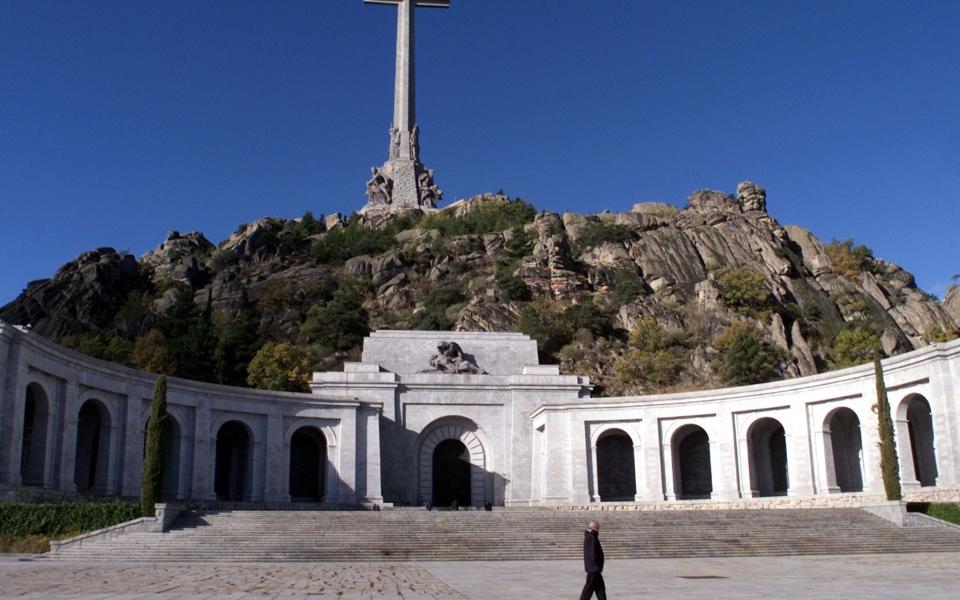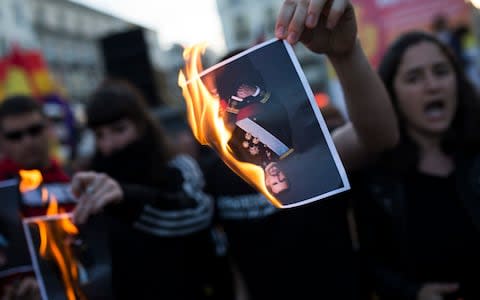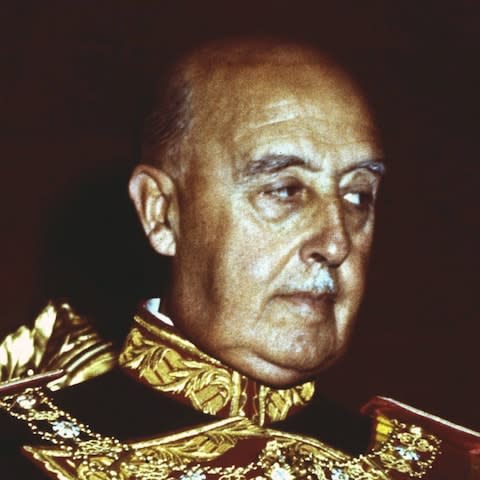Spanish family win six-year battle to exhume bodies of relatives killed by Franco

Four decades after the end of the Franco dictatorship, the wall surrounding Spain’s largest mass grave is finally to come down.
After a six-year battle, the family of two brothers executed by General Francisco Franco's troops in 1936 will on Monday see work begin on exhuming their remains from the Valley of the Fallen, the controversial monument containing Franco's tomb where at least 33,000 Civil War victims are also interred.
A team of archaeological and forensic specialists will break through the wall surrounding the monument’s vast ossuary in search of the bodies of Manuel Lapeña, a leftist union leader and father of four, and his metalworker brother Antonio.
It will mark a pivotal moment in the long fight by victims’ families to finally locate their loved ones, whose fates have mostly been obscured beneath amnesty laws imposed after the death of Franco.

Eduardo Ranz, lawyer for the Lapeñas and several other families, said the exhumation was a “historic precedent” that would open the way for others who had “waited for so long”.
The only surviving son of Manuel Lapeña, also named Manuel, is now 94 years old and has never given up his desire to give his father a dignified burial. He says he should be laid to rest alongside his mother in their hometown in Zaragoza, not “interred alongside his killer, the greatest criminal”, a situation he describes as “an insult”.
His daughter, Purificación Lapeña Garrido, who has led the family’s legal fight, recounts how during her childhood he would say: “That’s the man that killed my father” every time Franco appeared on television.
She told The Telegraph that the extrajudicial executions of her grandfather and uncle were an “evil thing” that her family had lived with on a daily basis.
Many Spaniards were still unaware of the full horrors of the Civil War and dictatorship era, Ms Lapeña said, due to political resistance to digging up the past.

“They don’t want to know, they want everything to be forgotten,” she said, lamenting that “we are still like this after so many years.”
There are believed to be up to 140,000 victims of the Civil War and dictatorship still buried in over 2,300 mass graves across Spain.
But the drive to open up the Valley of the Fallen and other sites has met with strong opposition from authorities. While the Law of Historical Memory passed in 2007 effectively overturned the so-called Pact of Forgetting that had reigned since the transition to democracy in 1978, the current conservative government of Mariano Rajoy has firmly opposed any investigations of the country’s authoritarian past, leaving any excavations in the hands of local authorities or private initiatives.
In 2016, a court ordered Spain’s National Heritage body to facilitate the exhumation of the Lapeña brothers. But the Benedictine abbot who oversees the Valley of the Fallen refused to allow it, mounting appeals and even declining to appear at the Senate’s Justice Commission in March with the retort that senators could come to him. Spain’s Episcopal Conference finally stepped in and ordered him to stop blocking the works, the first stages of which are now scheduled for Monday and Tuesday.
The Lapeña family fear their fight may still not be over. The team could find technical obstacles to the exhumation, something that, after so many disappointments, Ms Lapeña worries could be used as an “excuse”.
To many, the continued existence of the monument is a disgrace. In March, a visiting delegation of MEPs described it as an “insult to the victims” out of place in modern Europe.
The Lapeña family says it should not be torn down, but that the site should de-consecrated, its towering 500ft cross demolished, all remains removed and an educational centre built.
Miguel Ángel Capapé, head of the historical memory association ARICO and Ms Lapeña’s husband, said a vast monument to a dictator who killed thousands would be “unthinkable in any other European country”.
The exhumations would take years, Ms Lapeña acknowledged. But for the families, their loved ones' interment in a place where "they celebrate the dictator every day" was a "humiliation" that must be ended.

 Yahoo News
Yahoo News 